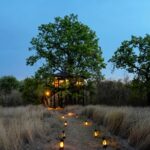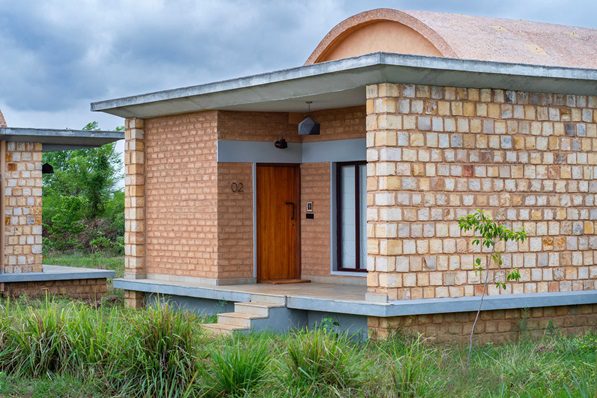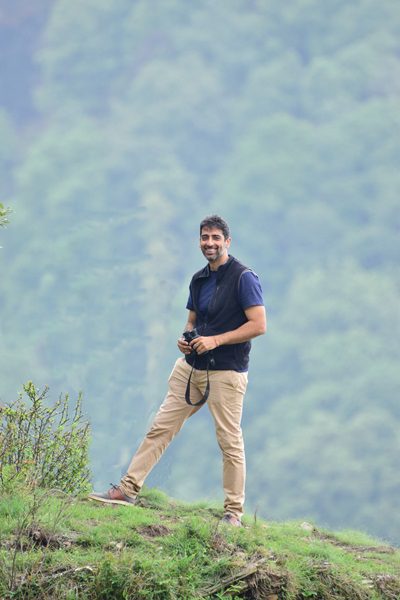 Pugdundee Safaris, one of India’s leading responsible safari companies with seven jungle lodges in Central India, has pioneered responsible tourism practices to offer the best of Indian wildlife & hospitality.
Pugdundee Safaris, one of India’s leading responsible safari companies with seven jungle lodges in Central India, has pioneered responsible tourism practices to offer the best of Indian wildlife & hospitality.
Manav Khanduja, Co-founder at Pugdundee Safaris, said: “Driven by the love of Indian jungles, we made an unplanned humble beginning in 1986, with a small-tented camp at Panna. We understood at the very start that the term sustainability is much more than just a branding attribute. It involved lives and certainly involved a much serious consideration of our time & energy to bring about a change. We started our journey from scratch and realized that it gave voice to many goals we always wished to reach at.”
Named Pugdundee, the commonly used word for ‘foot trail’ in Hindi, the eco-conscious company strives to maintain nature’s balance with humans and animals.
Mr Khanduja said: “We continuously work on delivering the best possible guest experience, while still integrating the conservation of jungles and the people living around. We are motivated by the hope of reaching out to people in the remotest areas of our country, as we believe that they are the front-runners of wildlife conservation.”
They set up two more lodges between 2007 -2010. All three were brought under a common umbrella, Pugdundee Safaris, in 2011. Today, seven lodges are run by a passionate team of over 300 wild lifers and hospitality professionals, including naturalists, nature guides, boatmen, trackers, and a marketing team based in Delhi’s capital.
Pugdundee Safaris is also engaged in conservation and community development activities. Mr Khanduja said: “If we wish to conserve our forests, we must look after the needs of local people by helping to improve their ability to earn livelihoods. Our lodges set mostly in remote locations away from regular tourism hubs help ensure that the benefit of eco-tourism is distributed far and beyond.”
Central India has a stronghold of wild tigers and is the best place to see big cats worldwide. Leopards, sloth bears, elephants, and Indian gaur are also in good numbers. Active safaris, birding, walking safari and camping in Satpura Tiger Reserve, an expedition on bicycle from Pench to Kanha through a tiger corridor, or wildlife photographing experience from the professionally built photography hides in Pench & Tadoba are some of the experiences provided by Pugdundee Safaris.
Mr Khanduja said that more than 70 per cent of Pugdundee team members are locals who have grown up in the wildest parts of the country and never cease to let go of a chance to share their captivating tales with guests.
Sustainability.
At the heart of their sustainability vision is the commitment to reduce their impact on the shared environment and contribute towards positive change.
Mr Khanduja said: “We began our sustainability journey in 2017 where we started work on organic farms across all 6 lodges. This was followed by making our 6 lodges single use plastic free in 2019”.
Farm-to-table initiatives help serve fresh produce grown in their organic kitchen gardens and sourced from local farmers, reducing carbon miles.
He added: “We continue to be actively engaged in contributing to the education and infrastructure of local schools since five years. In 2020, we adopted ESG (Environmental, Social and Governance) standards set by the Global Sustainable Tourism Council”.
Thus, lodges are periodically audited and certified on the Global Sustainable Tourism Criteria. Managers and staff participate in regular sustainability training and are accountable for sustainability-related changes and reporting.
Responsible initiatives.
Lodges are tastefully built in vernacular architectural styles, emphasising local and green architecture.
Mr Khanduja said: “We started our responsible journey by making 6 of our lodges single use plastic free in guest amenities & services. From water bottles to cutlery to sachets to bathroom dispensers, everything was replaced by a sustainable choice.”
Native species of flora are planted in lodge premises, naturally extending into surrounding forests. This paves natural and safe passage to visiting wildlife and other fauna. The Pugdundee team has contributed close to 25,000 plants in and around the vicinity of its lodges.
Mr Khanduja said: “We continued this journey at our Sustainable Wildlife Lodges in India in the last two years by installing solar plants and mushroom huts to reduce our carbon footprints and stick to an organic and healthy way of living.
75 per cent of the power need is met at the in-house 50 KV net metering solar plants installed at the lodges. The ‘Learn with Pugdundee’ educational initiative provides a platform for wildlife enthusiasts to learn and contribute to the environment.
Attaining sustainability is an ongoing process. There are challenges, too. Mr Khanduja said: “We keep adopting reforms that can encourage avenues for the economic well-being of host communities. Capital investment is a continuous struggle. There are no capital subsidies or incentives on setting up solar plants, STP (Sewage Treatment Plants) & other sustainable initiatives in the commercial space.”
The group has been acknowledged for its sincere efforts with many accolades from the International Centre for Responsible Tourism and through Visitor Choice awards on popular online tourism portals.
Written by: Madhura Katti




















